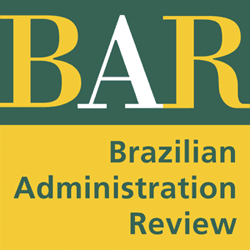Dear BAR Readers,
It is my pleasure to bring to your attention six stimulating studies, which present interesting insights into the Brazilian business context that can, to a great extent, be generalized to other contexts.
The first article (“Consumer Complaints and Company Market Value”, by Danny Claro, Antonio Fabio Fragoso, Silvio Laban Neto and Priscila Claro) brings a non-linear view to the impact of consumer complaints on firm market value. Contrary to common sense, findings suggest that low levels of complaints may lead to an increase in market value; on the other hand, as could be expected, high levels of complaints have a negative impact on market value. In addition, there seems to be a negative tradeoff effect by which efforts to reduce complaints may negatively affect market value.
The second study (“Hockey Stick Phenomenon: Supply Chain Management Challenge in Brazil”, by Lars Sanches and Orlando Lima Jr.) brings evidence that the spike in demand at the end of a sales period (known as the hockey stick phenomenon) has a negative impact on a manufacturer’s long-term financial performance. The authors discuss remedies to deal with the phenomenon.
The next paper (“Understanding Interorganizational Learning Based on Social Spaces and Learning Episodes”, by Anelise Mozzato and Claudia Bitencourt) is a theoretical reflection on the interorganizational nature of learning, which can take place in structured as well as in unstructured social spaces. The phenomenon seems to be more of a social-behavioral, rather than of a cognitive, nature.
The fourth article (“Polishing Knowledge: A Study of Marble and Granite Processing”, by Simone Mezadre and Monica Bianco) uses ergology tools to investigate the relationship between worker competency, professional training obtained on the job, and work experience in the absence of an a priori formal education.
The fifth paper (“Effects of Internationalization on Ownership Structure: Evidence from Latin American Firms”, by Hsia Hua Sheng and Vinícius Pereira) employs agency theory to explain the relationship between degree of internationalization and ownership concentration.
We close this issue with a bibliometric study (“A Bibliometric Study on Culture Research in International Business”, by Claudia Pinto, Fernando Serra and Manuel Portugal Ferreira) that identified two main clusters of research on culture in international business studies (respectively, conceptualization of culture and cultural distance), with Hofstede’s (1980) work delineating much of the conceptual and empirical approach to culture-related studies.
I would like to close this editorial by motivating our readers to submit their studies to BAR, which has been gaining ever more international visibility.
All the best,
Jorge Carneiro
Editor-in-Chief
Publication Dates
-
Publication in this collection
Sept 2014

